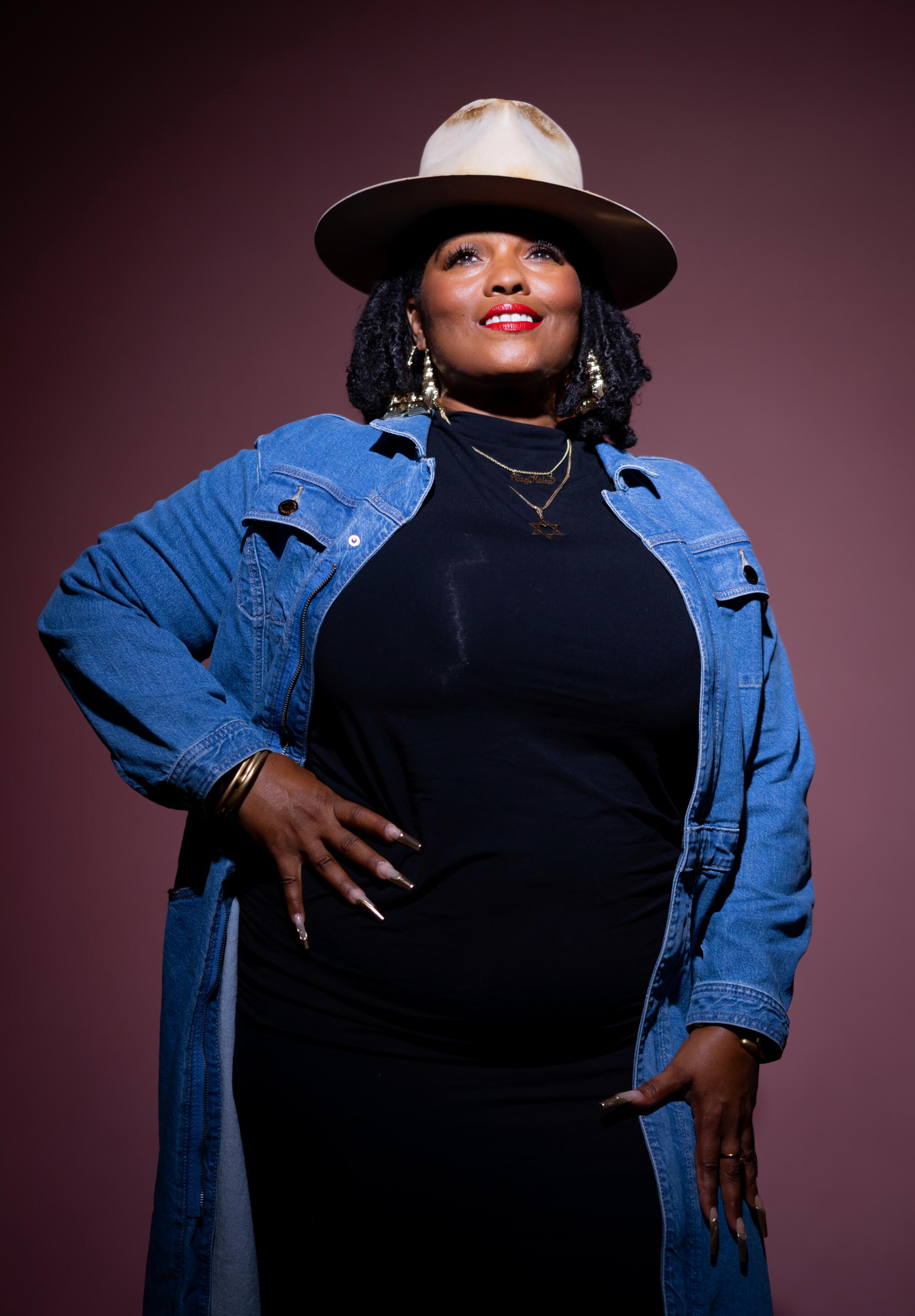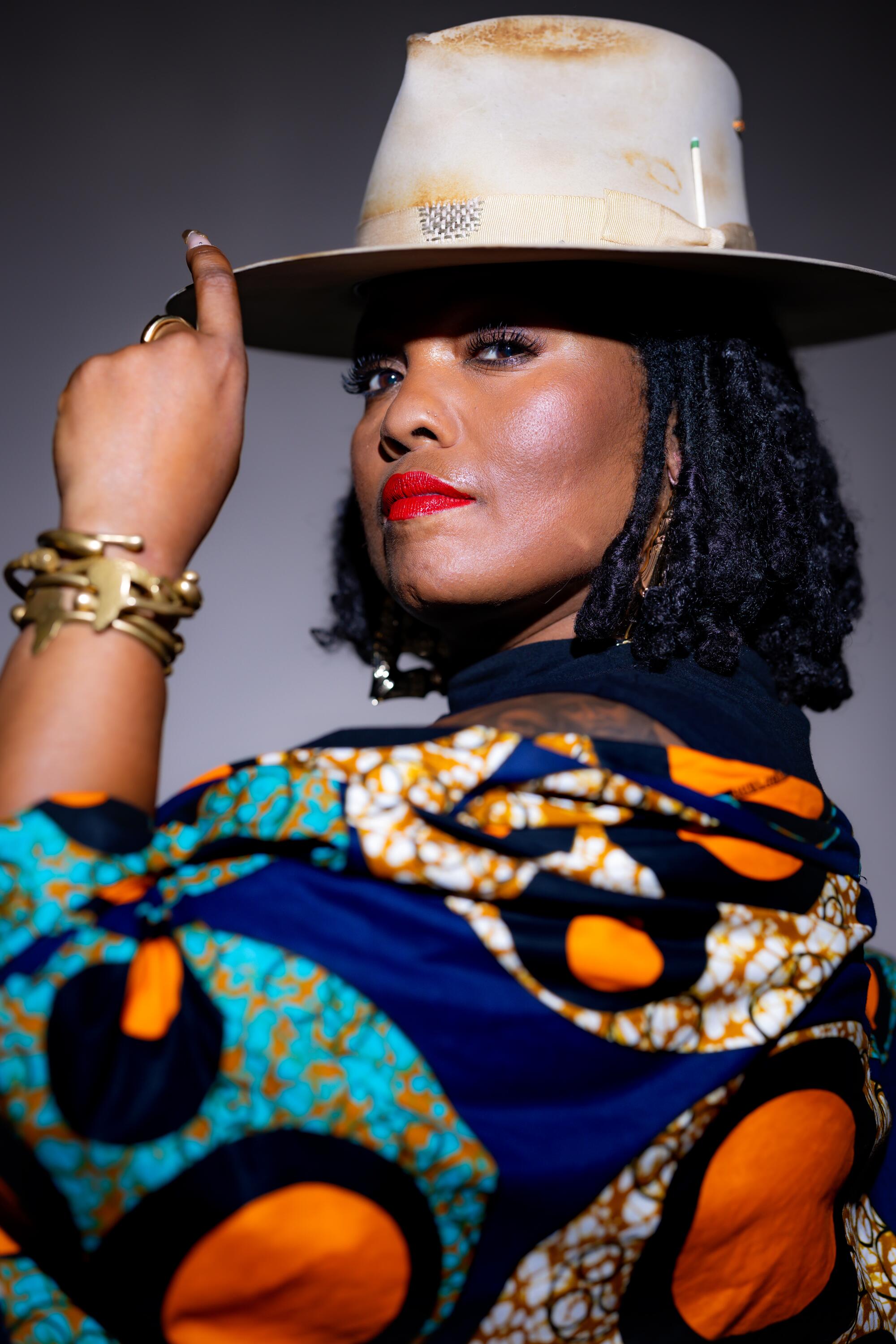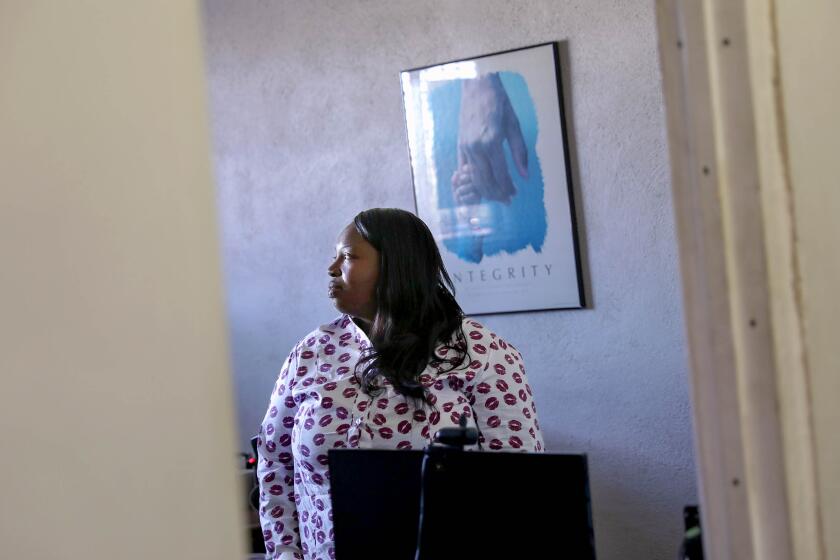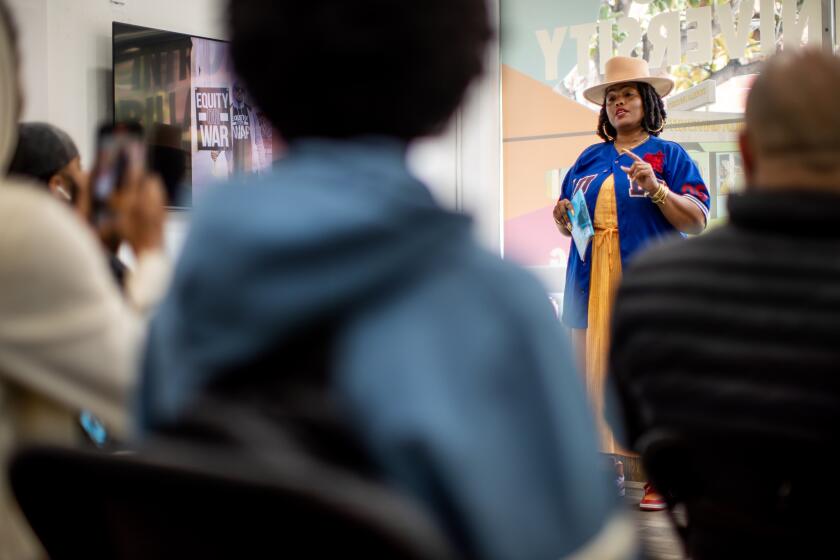
Before curious customers can even ask Kika Keith how her bright and airy cannabis shop in the heart of Leimert Park came to be, she’ll tell them it’s the “house that people built.”
She’ll tell them about how in 2020, L.A. politicians weren’t keeping their grandiose promise that California’s legal weed industry would help Black people who joined it as entrepreneurs build generational wealth, thereby righting the racist wrongs of the war on drugs.
Discover the changemakers who are shaping every cultural corner of Los Angeles. L.A. Influential brings you the moguls, politicians, artists and others telling the story of a city constantly in flux.
Instead, Keith, 52, will tell them she was slowly going broke trying to open Gorilla Rx Wellness Co. And so she organized other cash-strapped, would-be entrepreneurs of color into the Social Equity Owners and Workers Assn., sued the city and won.
“The community was looking at us,” Keith recalled, “and we did not waver in our truth.”
This was the moment that she realized their “truth” had become her power, which has grown into real influence since then.
The promise of ‘social equity’ has been a key narrative tied to California’s legalized pot industry. So far, efforts have been mired by costly delays.
In the small, but growing “cannabis equity” movement, Keith is arguably the leading advocate and consultant in California.
With a penchant for beanies and red lipstick, she is unsparingly direct with her words, but also soft-spoken.
She is frequently tapped by cities and counties looking to launch — or more often fix — cannabis equity programs. At the state level, lawmakers have increasingly heeded her advice to address flaws and loopholes in the law that have made the business harder for entrepreneurs of color.

Keith also runs the workforce training center and business incubator Gorilla University.
“I wanted to be a person who actually effectuates change,” she said, “but I couldn’t envision this.”
Her personal story of growing up in South L.A. during the drug war and spending time in a homeless shelter with her daughters before becoming the first Black woman to open a cannabis shop in L.A. has made her stand out in a troubled industry beset by corruption, violence and greed.
A bill championed by the first Black woman to own a cannabis shop in L.A. could be the last hope for social equity programs that failed entrepreneurs.
Indeed, without her advocacy, equity in the business likely would have remained merely talk.
Keith acknowledged as much one morning in March 2023, when she was grousing about having to travel to Sacramento to testify at the Capitol.
“Should it really be my responsibility to educate them?” she said of lawmakers, and then paused.
“But if I don’t...”
Keith didn’t bother to finish the sentence. She already knew the answer.








